Bob Fosse Wanted to Be Master of Ceremonies, and Other Revelations from the World Premiere of the Restored Cabaret
- FOR:
- Hollywood
By Alberto E. Rodriguez/Getty Images.
“This is more exciting than winning the Academy Award!” Liza Minnelli told the crowd that had gathered at Grauman’s Chinese Theatre last night for the unveiling of the newly restored Cabaret. Co-hosted by Vanity Fair, the event kicked off this year’s Turner Classic Film Festival in Hollywood. Before the curtains parted to the strains of the “Willkommen” drum roll, however, Minnelli was joined by co-star Michael York and the Master of Ceremonies himself, Joel Grey, to recall a few memories of the making of Bob Fosse’s eight-time Oscar-winning musical. Ahead, the most fascinating revelations from Minnelli, who won best actress for playing singer Sally Bowles in the 1972 film, and Grey, who won both a Tony and an Oscar as the Kit Kat Klub’s M.C.
Nein-where Land
Liza Minnelli: “We were sent off to Germany to make this musical about the Nazis. Because we were in Germany, that genius Bob Fosse did anything he wanted. Anything! At one point, he was sent a telegram from the studio saying that he was using too much smoke [as an effect in the Kit Kat Klub]. And in front of the whole cast, he tore it up and threw it over his shoulder. [The studio] couldn’t do a thing.”
Styling Sally Bowles
Minnelli: “The only thing that I knew about the 30s was Marlene Dietrich. So when they told me that I was going to play Sally, I figured that I would make my hair blond, but my dad [director Vincent Minnelli] said, ‘You know, there were other looks in the 30s.’ He showed me these pictures of Louise Brooks and all of these exotic, wonderful creatures. And I thought, ‘Oh great!’ and started thinking about the look. I was driving down La Cienega [in Los Angeles], and I saw this eyelash shop. I went in and said, ‘Hi there. Whaddya got? I’m making this character and I want her to be extraordinary!’ And she made those big eyelashes that she put on me tonight [laughs]. I dyed my hair and cut it in a point with Joel’s help. I knocked on Fosse’s door the night before we started shooting and said, ‘Whaddya think?’ He went, ‘What did you . . . you didn’t ask . . . I think it’s great.”
Casting Liza in Cabaret
Minnelli: “Well, I knew I was going to do the movie when I didn’t get the role in the [Broadway musical]. They decided to make [Sally Bowles] English [for the Broadway musical], so I asked what accent they wanted. Then they told me that they were going to cast somebody else. And for some reason, I thought right away, ‘That’s O.K. I’ll do the movie.’ I was young and I just knew it. Then the producer came over to Paris, where I was working on a show. And he said, ‘I’d like to see you.’ So I put on every scarf that I could find and this long coat, and I went and talked to him. He said he loved my ideas and loved that I thought that the boy [Brian, played in the film by Michael York] should still be homosexual. It shouldn’t be changed in the movie because that changes everything.’ I still wasn’t sure, though, so I asked him to come to my show that night and I did ‘Cabaret’ for him. And that’s when he said, ‘You got it.’ That’s when I got it.”
The Minnelli-Fosse Bond
Minnelli: “I listened carefully to everything Fosse taught me. He taught me the walk. I wasn’t sure how to play the character, but being a director’s daughter, I zoned in [on Fosse] and it worked.”
From the Stage to the Screen
Grey, explaining why certain songs didn’t make it into the film version: “They made very smart decisions. The Hollywood musical [movie] was in disrepair. [Audiences] were not buying the way in which it was done. And I think that Bob always wanted to be a director of straight films, so I think that he looked at this as a straight film with some musical interludes. I think it was really smart.”
Money, Money
Minnelli: “When Fosse would give direction, he said, ‘Liza, look, think money. It’s sexual. Money is here [points to her pelvis]. And he said to Joel that in Africa, when men go for the women, they wear a big rhinoceros horn on their equipment. That’s what you have to do.”
Grey: “Not only that, but I think he staged two other versions fully and didn’t like them. We learned them and performed them as if we were being filmed the next day, but he would not accept anything but his vision.”
Minnelli: “The other two weren’t dark enough. They were so fun. At one point, though, he got so mad and came up to me and said, ‘You weren’t as serious and sexual as I wanted you to be.’ I started to cry, because I tried my best. Then he had to tell Joel the same thing. We went down to Joel’s dressing room together, and Fosse was a little nervous. Fosse knocks on his door and says, ‘It didn’t come out the way I wanted it to. It wasn’t sexual enough. It wasn’t serious enough.’ And Joel just said, ‘Too bad! I’m sorry to hear that.’ And closed the door.”
Master Rivalry
Grey: “You could say that we had history. The truth of the matter is that Bob did not want me in the movie, and I was heartbroken. He looked at every other possible actor. I understood it in a certain respect, because he wanted to create this from the very beginning with all new actors. And, honestly, I think that he wanted to play the part himself. I’m serious. He was a great performer, and he never really got to do enough of that, so the fact that I was shoved down his throat caused a really interesting challenge for each of us. That’s why I closed the door.”
Beer-Garden Surprise
Minnelli: “The one sequence that Fosse hadn’t counted on doing—he didn’t rehearse it so he was terrified—was the sequence outside in the beer garden, where the Nazi boy stands up and sings. It’s wonderful because you see that there is a shot of a man and he was old enough to be really confused by seeing these Nazis again, even though they were in costumes. It’s just a brilliant little, chilling moment.”
Nein-where Land
Liza Minnelli: “We were sent off to Germany to make this musical about the Nazis. Because we were in Germany, that genius Bob Fosse did anything he wanted. Anything! At one point, he was sent a telegram from the studio saying that he was using too much smoke [as an effect in the Kit Kat Klub]. And in front of the whole cast, he tore it up and threw it over his shoulder. [The studio] couldn’t do a thing.”
Styling Sally Bowles
Minnelli: “The only thing that I knew about the 30s was Marlene Dietrich. So when they told me that I was going to play Sally, I figured that I would make my hair blond, but my dad [director Vincent Minnelli] said, ‘You know, there were other looks in the 30s.’ He showed me these pictures of Louise Brooks and all of these exotic, wonderful creatures. And I thought, ‘Oh great!’ and started thinking about the look. I was driving down La Cienega [in Los Angeles], and I saw this eyelash shop. I went in and said, ‘Hi there. Whaddya got? I’m making this character and I want her to be extraordinary!’ And she made those big eyelashes that she put on me tonight [laughs]. I dyed my hair and cut it in a point with Joel’s help. I knocked on Fosse’s door the night before we started shooting and said, ‘Whaddya think?’ He went, ‘What did you . . . you didn’t ask . . . I think it’s great.”
Casting Liza in Cabaret
Minnelli: “Well, I knew I was going to do the movie when I didn’t get the role in the [Broadway musical]. They decided to make [Sally Bowles] English [for the Broadway musical], so I asked what accent they wanted. Then they told me that they were going to cast somebody else. And for some reason, I thought right away, ‘That’s O.K. I’ll do the movie.’ I was young and I just knew it. Then the producer came over to Paris, where I was working on a show. And he said, ‘I’d like to see you.’ So I put on every scarf that I could find and this long coat, and I went and talked to him. He said he loved my ideas and loved that I thought that the boy [Brian, played in the film by Michael York] should still be homosexual. It shouldn’t be changed in the movie because that changes everything.’ I still wasn’t sure, though, so I asked him to come to my show that night and I did ‘Cabaret’ for him. And that’s when he said, ‘You got it.’ That’s when I got it.”
The Minnelli-Fosse Bond
Minnelli: “I listened carefully to everything Fosse taught me. He taught me the walk. I wasn’t sure how to play the character, but being a director’s daughter, I zoned in [on Fosse] and it worked.”
From the Stage to the Screen
Grey, explaining why certain songs didn’t make it into the film version: “They made very smart decisions. The Hollywood musical [movie] was in disrepair. [Audiences] were not buying the way in which it was done. And I think that Bob always wanted to be a director of straight films, so I think that he looked at this as a straight film with some musical interludes. I think it was really smart.”
Money, Money
Minnelli: “When Fosse would give direction, he said, ‘Liza, look, think money. It’s sexual. Money is here [points to her pelvis]. And he said to Joel that in Africa, when men go for the women, they wear a big rhinoceros horn on their equipment. That’s what you have to do.”
Grey: “Not only that, but I think he staged two other versions fully and didn’t like them. We learned them and performed them as if we were being filmed the next day, but he would not accept anything but his vision.”
Minnelli: “The other two weren’t dark enough. They were so fun. At one point, though, he got so mad and came up to me and said, ‘You weren’t as serious and sexual as I wanted you to be.’ I started to cry, because I tried my best. Then he had to tell Joel the same thing. We went down to Joel’s dressing room together, and Fosse was a little nervous. Fosse knocks on his door and says, ‘It didn’t come out the way I wanted it to. It wasn’t sexual enough. It wasn’t serious enough.’ And Joel just said, ‘Too bad! I’m sorry to hear that.’ And closed the door.”
Master Rivalry
Grey: “You could say that we had history. The truth of the matter is that Bob did not want me in the movie, and I was heartbroken. He looked at every other possible actor. I understood it in a certain respect, because he wanted to create this from the very beginning with all new actors. And, honestly, I think that he wanted to play the part himself. I’m serious. He was a great performer, and he never really got to do enough of that, so the fact that I was shoved down his throat caused a really interesting challenge for each of us. That’s why I closed the door.”
Beer-Garden Surprise
Minnelli: “The one sequence that Fosse hadn’t counted on doing—he didn’t rehearse it so he was terrified—was the sequence outside in the beer garden, where the Nazi boy stands up and sings. It’s wonderful because you see that there is a shot of a man and he was old enough to be really confused by seeing these Nazis again, even though they were in costumes. It’s just a brilliant little, chilling moment.”














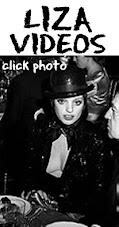


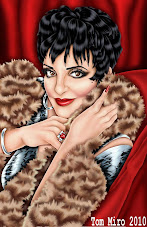

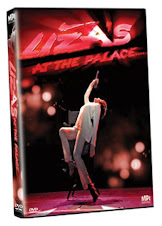











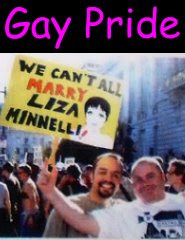










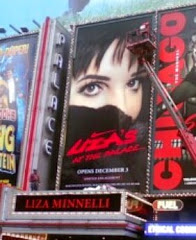



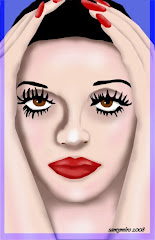
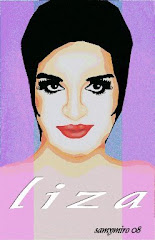


























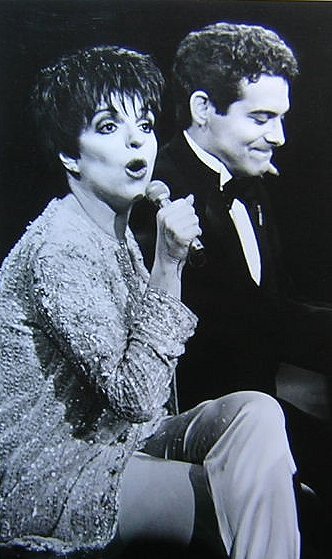


































No comments:
Post a Comment